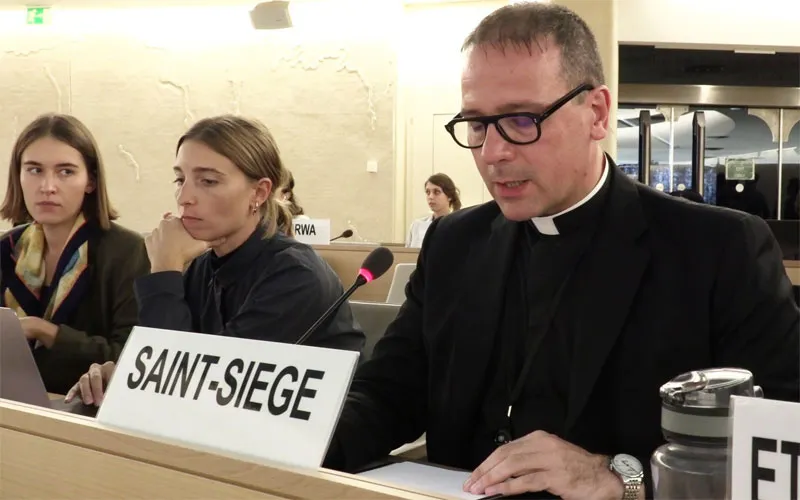Geneva, 05 March, 2020 / 11:43 pm (ACI Africa).
Delegates of the Holy See have, during the recent 43rd Session of the Human Rights Council at the United Nations (UN) in Geneva, Switzerland, called for an amicable solution to the challenges that the Catholic Church in Eritrea is facing and expressed readiness for “a constructive and respectful dialogue” to end the tense relations pitting the government against the Church in the Northeast African country.
In his presentation at the February forum, the Secretary of the Holy See Delegation to the U.N. Geneva, Msgr. Mauro Cionini said that while the Catholic Church has always sought to detach itself from the politics of any country, it has nonetheless the mandate to reach out to all people of God and to foster “integral development of all.”
“The Holy See reiterates that the Catholic Church, in accord with its own nature and universal mission, carries out charitable and social activities for the whole population, with a special attention to the most in need, without discrimination,” Msgr. Cionini said.
The Catholic Church, Msgr. Cionini clarified, “pursues humanitarian and not political aims, seeking to offer its own contribution to the promotion of justice, peace, reconciliation and dialogue.”
“We, therefore, encourage the Eritrean Government to enter into a constructive and respectful dialogue with the Holy See, in view of building a prosperous and peaceful future, where the rights of freedom of religion or belief are respected in the context of international law, for the integral development of all.”








